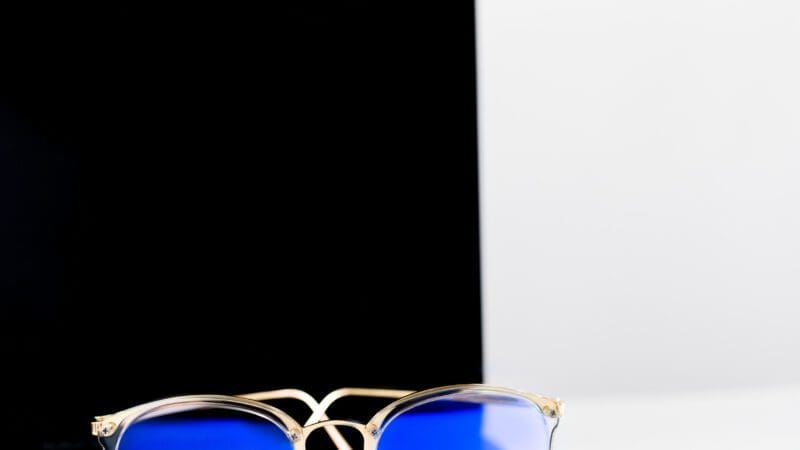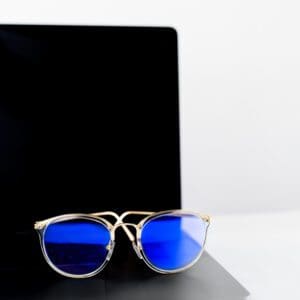A major caveat of science is the ability to test theories and principles for new and improved versions of our understanding. This means that as our understanding and expansion of knowledge increases, we will go back and look at previously held conclusions and, if necessary, modify them. In psychology, as in other fields, we constantly look to test our previously held assertions and adjust them when necessary. With that in mind, I need to make my readers aware of some new findings regarding using blue light blockers.
In a previous blog article, How to Improve Your Sleep Part 2, I wrote a section about the beneficial use of blue blocker glasses to counteract the effects of blue light emitted by electronic screens. When I wrote the article, some studies showed that these glasses could filter out the potentially harmful effects of blue light from screens, such as eyestrain dry eye, and help offset sleep problems. The initial studies were relevant enough that since the early 2000s, optometrists have been increasingly prescribing or recommending these glasses and lenses.
However, a recently published study in Cochrane Database of Systematic Reviews shows that there is little to no evidence of any benefit from using blue blocker glasses. The study reviewed data collected from 17 clinical trials in six countries involving 619 people. Here is what the researchers discovered.
-
There was no statistical evidence demonstrating that blue-light filtering lenses protect against damage to the retina. The retina is the light-sensitive tissue at the back of the eye.
-
There is little to no difference in visual fatigue with blue‐light filtering lenses compared to non‐blue‐light filtering lenses.
-
Despite claims by their makers, blue light glasses don’t reduce eyestrain for people who spend a lot of time looking at computer screens or their phones.
-
It is unclear whether these lenses affect vision quality or sleep-related outcomes, and the glasses don’t improve wearers’ sleep habits either.
Nevertheless, The Cochrane review found no consistent reports of adverse side effects from using blue blocker glasses. It was mild, infrequent, and temporary for those participants who claimed to have side effects. They included discomfort wearing the glasses, headaches, and a lower mood. More than likely, these side effects were related to wearing glasses in general.
All this means is that the best thing for us to do is cut down on eyestrain by simply cutting down on the amount of time we look at screens or by taking regular breaks. In order to improve sleep, we should shut down our screens for a few hours before bedtime.


